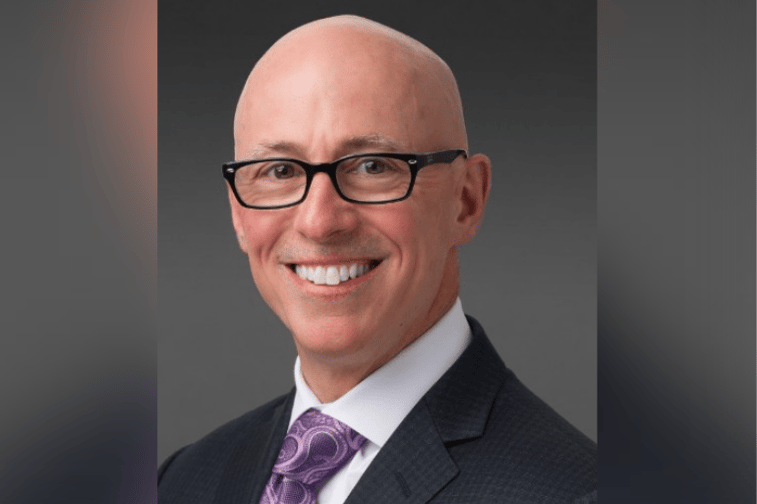

Attracting and retaining talent is a huge challenge for many industries, but it’s an acute pain for the healthcare space. The pandemic and the Great Resignation have led to excessively high turnover rates, overwhelming burnout, and nursing shortages across the US.
According to Bill Bower (pictured), senior vice president - director of healthcare at Gallagher Bassett Specialty, the negative effect of the Great Resignation on patient care can potentially increase an organization’s risk portfolio.
“This is a perfect storm in the healthcare industry. Fatigue, burnout, stress, feeling disenfranchised – all those factors already existed in the healthcare space. They just hadn’t gotten to a level of crisis before the pandemic tipped everything,” said Bower. “When you look at studies about the projected need for nurses, it's outpaced the actual number of nurses for years.”
An April 2022 study by published in Health Affairs found that the total supply of registered nurses (RNs) in the US dropped by more than 100,000 between 2020 and 2021, at the height of the pandemic – the largest decrease in the past four decades.
The study saw that a significant number of nurses leaving the workforce were under the age of 35, and most were employed in hospitals. On the other hand, the US Bureau of Labor Statistics projects that over 275,000 additional nurses are needed in the next eight years.
Exposures from the nursing shortage
Technological innovation and the improvement of care delivery models over the past few years, particularly in primary care, has allowed hospitals and healthcare providers to be more efficient in providing patient care to more individuals. But overwhelmingly stressful workloads and environments have pushed many nurses and healthcare staff over the edge.
Decreased staff-to-patient ratios can all have a detrimental impact on service delivery and patient care. More experienced nurses leaving due to exhaustion are creating a brain drain, which can also lower the quality of care at hospitals and open them up to liabilities.
“Nurses must do more with less these days, and they're even more exhausted than they were before. Bedside care becomes riskier if you have less staff,” Bower said. “Another concern is that as hospitals compete with travel nurses, they have to find more funds to pay their own nurses or pay more to travel nursing agencies to come in and fill that gap.”
The more money hospitals spend on staffing, the less money they can invest on enhancing facilities and improving care processes. Constantly hiring new nurses also means more time and funds spent on training, draining organizations’ budgets even more.
“The new nurses coming into your facility don't have the institutional knowledge of the nurses who have resigned, which means the onboarding is very tight. Are they familiar with your electronic health record system? Do they know the processes and procedures in your organization?” asked Bower.
“All of those things provide a level of risk that is starting to increase, as we have more and more nurses resigned and have more and more difficulty filling that gap.”
Where are nurses going?
Burnout isn’t the only main cause of the Great Nurse Resignation. Nurses are also seizing other opportunities that offer more money, more flexibility, or both, such as in the clinical space or in travel nursing.
“There are those that have used transferable skill sets and moved into administrative positions or to another industry because they are just too burnt out. Those are the kind of folks that … reached a ‘pandemic epiphany’,” Bower said.
But RNs who left hospitals to pursue travel nursing may find their contracts expiring soon and contemplate returning to their former jobs as the pandemic calms down. Some might find they prefer hospital-based care to constant traveling.
“Travel nursing sounds great initially, until you find yourself in South Dakota for eight weeks. Even though you’re making more money, it’s not really where you want to be,” joked Bower.
As the pandemic settles, healthcare organizations have an opportunity to re-attract former RNs to return to the workforce and plug the talent gap. However, Bower said staffing levels won’t return to pre-pandemic levels for some time. Other factors such as the retirement of older RNs and a lack of educators could also aggravate the shortage.
What can the healthcare industry do to attract and retain nurses?
Amid the dynamic labor market, what can hospitals and healthcare organizations do to increase talent attraction and retention? “Organizations are definitely struggling with that proposition,” Bower told Insurance Business. “Money is not an unlimited resource, but the first position that hospitals took was to get more money to pay these nurses who were leaving. That's not sustainable.”
The ballooning expenses of hospitals also came as they had to abandon their more lucrative streams of revenue, such as elective surgeries, during the height of the pandemic. Paying nurses more will only go so far if organizations don’t make the necessary changes to make their talent feel more valued.
Improving working conditions and providing better benefits for nursing staff will go far in re-attracting those that left during the pandemic. One way to do is to address pre-pandemic causes of burnout, so that when the impact of COVID-19 settles, old stressors won’t return and plague nurses once again.
Bower also noted increasing workplace violence towards nurses, both physical and verbal, particularly in settings like the emergency department. Hospitals and healthcare organizations need to ensure they have systems in place to make nurses feel safe and valued, and to provide a work environment that allows for better work-life balance.
What are your thoughts on the Great Nursing Resignation? Leave them in the comments below.
